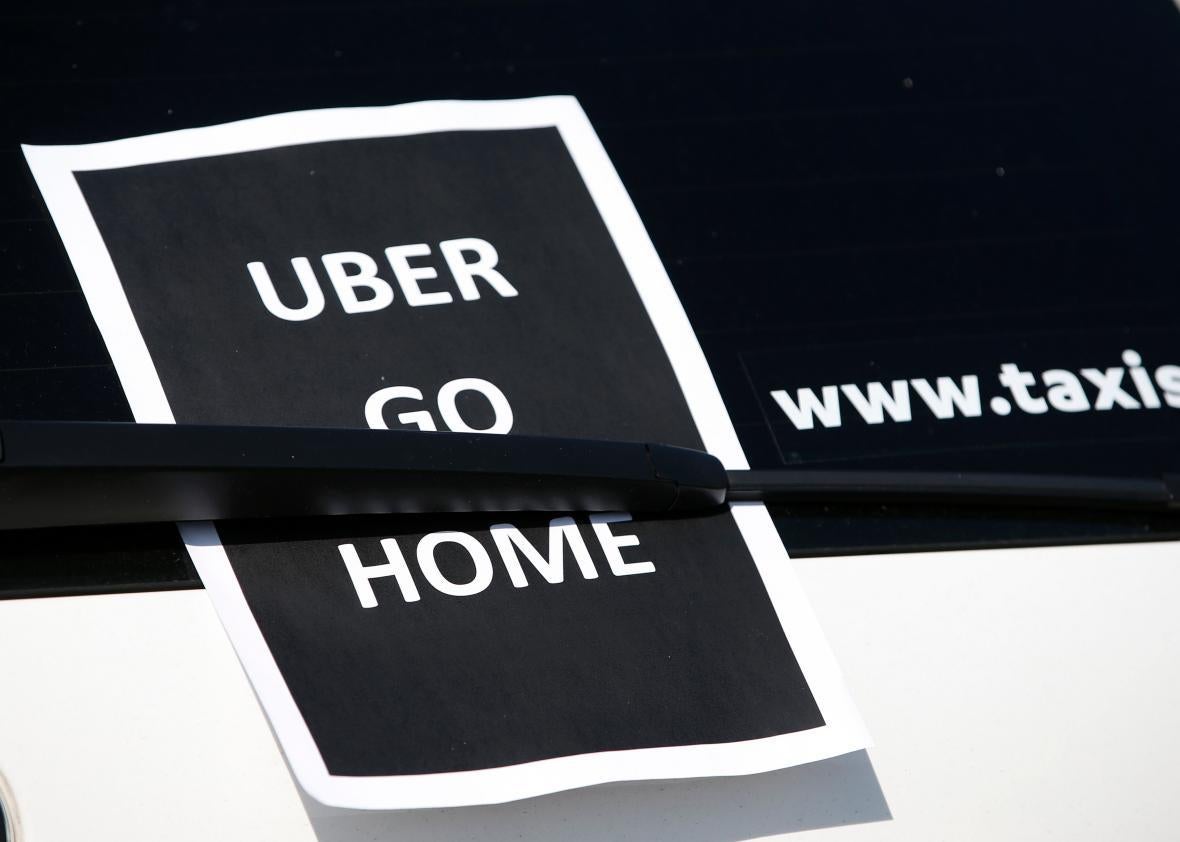Uber said there was “no typical ‘Uber driver.’ ” A federal judge disagreed.
In a ruling on Tuesday, U.S. District Court Judge Edward Chen granted Uber drivers class-action status on the question of whether they are independent contractors or employees. The decision could allow the plaintiffs in the suit to bring their claims in front of a jury on behalf of thousands of others in California. It’s a scenario that Uber has fought bitterly to avoid. In early July, the ride-hailing company filed a 52-page motion opposing class certification in the case, accompanied by a 102-page declaration from a UC–Berkeley law professor in support of that motion and statements from more than 400 drivers explaining why they might not work for Uber if they were considered employees.*
None of which seemed to impress Chen, who spent much of his 68-page ruling shredding Uber’s argument that its drivers don’t have enough in common with one another to be represented in a single court case. Sadly, the judge’s prose style tends toward dry legalese. But he managed to get in a bit of sarcasm early:
[O]n one hand Uber argues that it has properly classified every single driver as an independent contractor; on the other, Uber argues that individual issues with respect to each driver’s “unique” relationship with Uber so predominate that this Court (unlike, apparently, Uber itself) cannot make a classwide determination of its drivers’ proper job classification.
That’s judge speak for: “What, you really think you’re smarter than me?”
Elsewhere, Chen bluntly dismissed Uber’s insistence that there is “no typical driver,” claiming that the company focused on “legally irrelevant differences” between its contractors and the plaintiffs behind the suit, and waved away the many testimonials it presented as “statistically insignificant.” To wit:
First, while Uber claims that “countless drivers” hail the firm as a “liberator” from traditional employment, Uber has only submitted evidence of the beliefs of a small fraction of its California drivers: 400 out of 160,000 (i.e., 0.25%). Notably, even out of these 400 declarations, Uber identified only about 150 where the driver actually stated that she prefers to remain an independent contractor. See Evangelis Decl., Ex. 10 (chart listing roughly 150 “Drivers Who Want To Be Treated As Independent Contractors With Uber”). There is simply no basis in the record supporting Uber’s claim that some innumerable legion of drivers prefer to remain independent contractors rather than become employees.
All in all, Chen certified the class action on two points—employment classification and receiving tips under California Labor Code—and denied it on a few others. “We are extremely pleased with Chen’s order today,” Shannon Liss-Riordan, the lawyer bringing the case against Uber, wrote in a statement. “This decision is a major victory for Uber drivers. It will allow thousands of Uber drivers to participate in this case to challenge their misclassification as independent contractors, as well as to attempt to recover the tips that Uber advertised to customers are included in the fare, but are not in fact distributed to the drivers.”
Uber, for its part, says in a statement that Chen’s ruling will “certify only a tiny fraction of the class that the plaintiffs were seeking.” Ted Boutrous, the lawyer representing Uber, says the company is “likely to pursue an appeal for this decision because it is based on several key legal errors,” which demonstrate that “two plaintiffs do not and cannot represent the interests of the thousands of other drivers who value the complete flexibility and autonomy they enjoy as independent contractors.”
Why does Uber care so much? Because having its drivers, which the company currently treats as independent contractors, reclassified as employees could be very, very bad for business. Uber is part of what’s alternatively known as the “on-demand,” “gig,” or “1099” economy, the last being a nod to the tax forms that the IRS requires of most independent contractors. These businesses are lean by design. In the gig economy, startup empires are built without actually owning anything or employing anyone—summoned from thin air by technology and algorithms that connect two sides of a marketplace. And so Uber owns no cars, and employs no drivers. Where the company once described itself as a “ride-sharing” service and “transportation network,” its preferred moniker these days is “lead generation.”
Uber is undoubtedly very rich, with a valuation that at last count topped $50 billion. But a ruling that its drivers are not, in fact, contractors and are instead employees—people entitled to traditional protections like a minimum wage and benefits—could shake its business model to the very core. And that’s not something that any company wants to reckon with.
*Correction, Sept. 2, 2015: This post originally misspelled UC–Berkeley.
